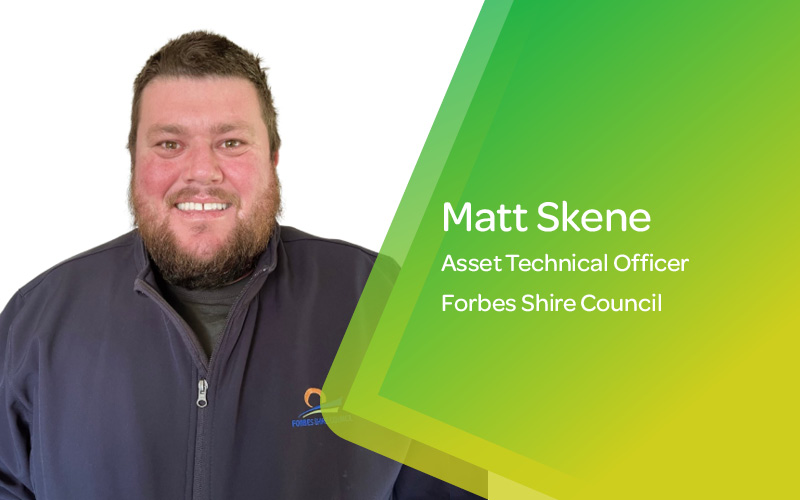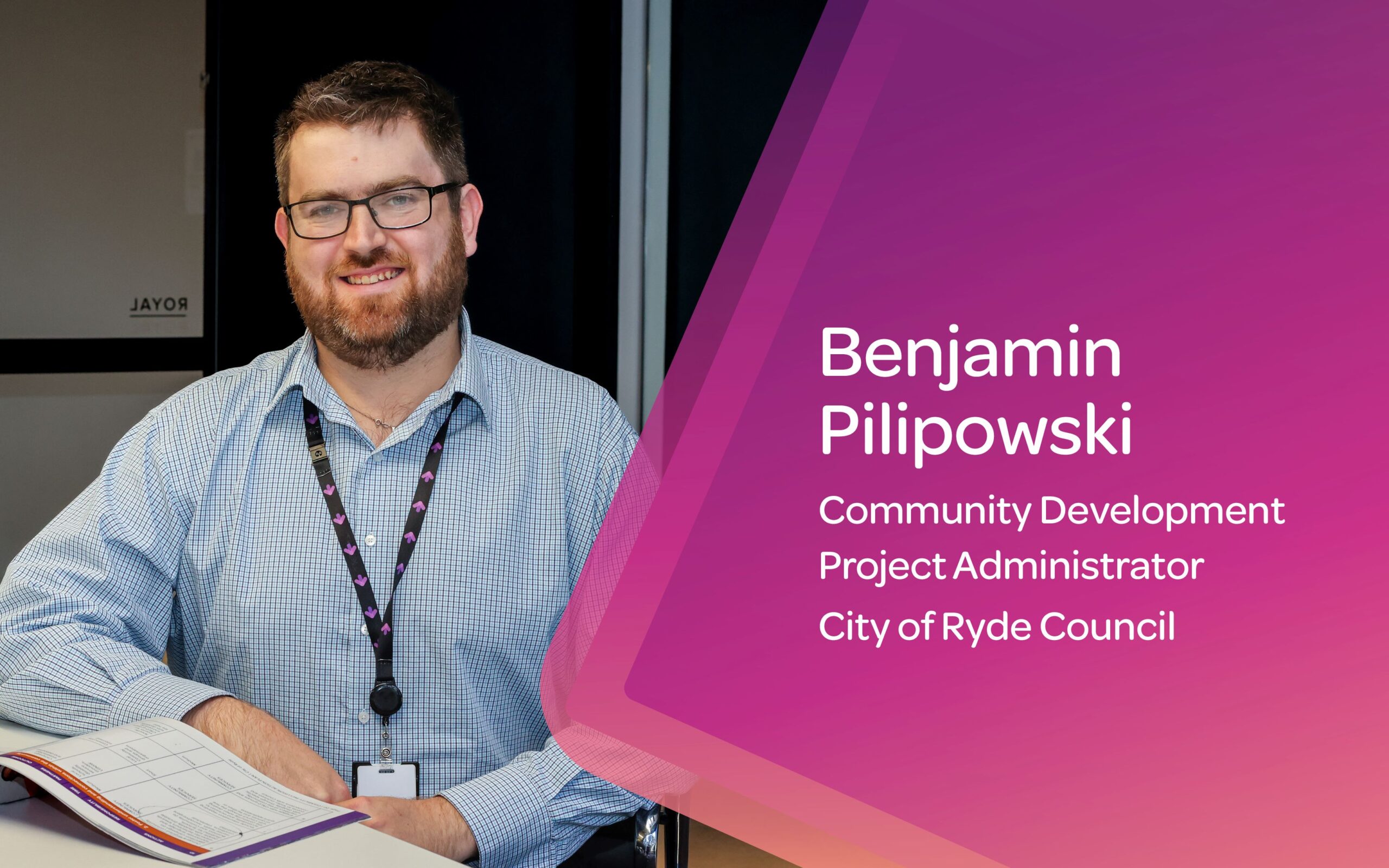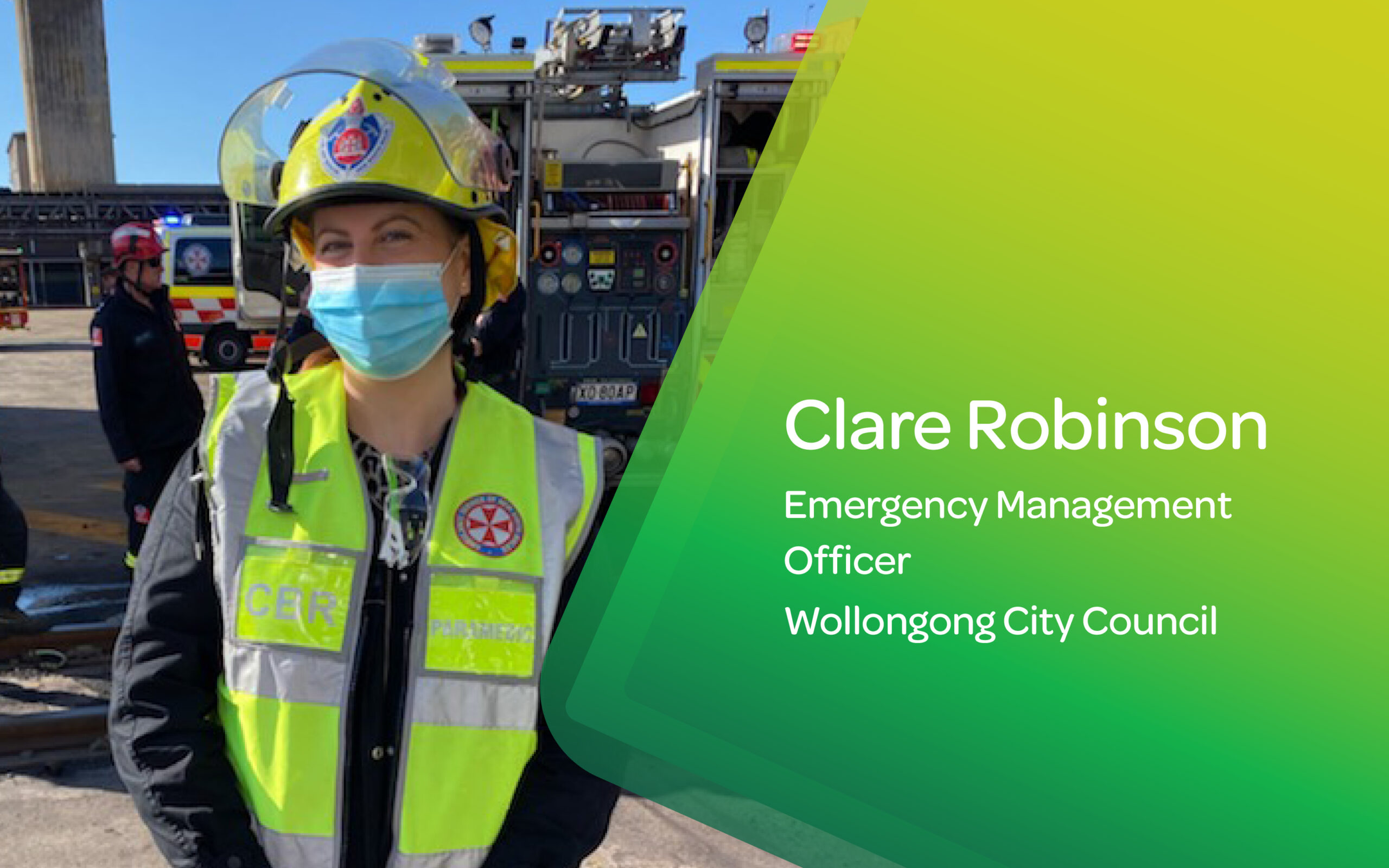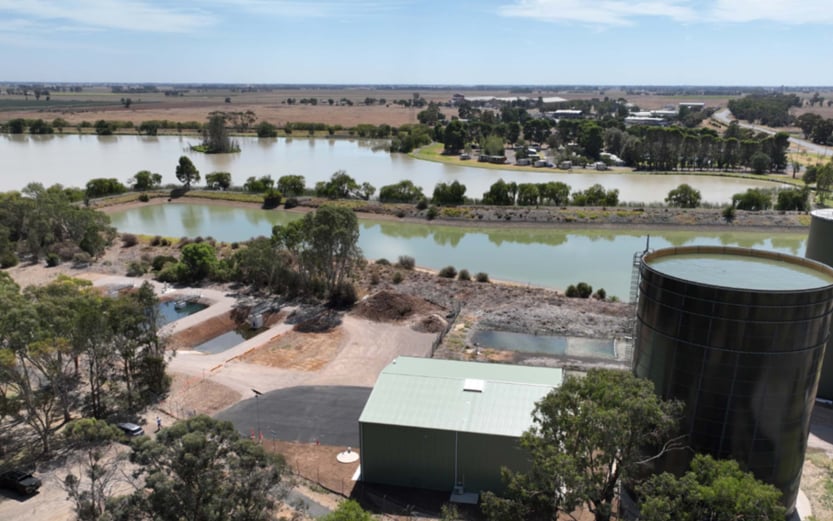
Q&A with Matt Skene, Asset Technical Officer at Forbes Shire Council
Nestled in the central west region of NSW, Forbes is a beautiful historical town boasting stunning natural surroundings and a bustling pub, café, and retail scene. We recently caught up with born and bred Sydneysider Matt Skene who has made Forbes his home. Read on as Matt explains his move to the central west and takes us through his astounding career journey – one that proves that in local government, if you’re willing to learn and work hard, anything is possible!
Q. Can you tell us a little about your career background and how you arrived at Forbes Shire Council?
A. I was born and raised in Sydney’s Bankstown and up until our move to Forbes 9 years ago, I had spent my entire working life in the city. I was in the construction industry, employed as a concreter for a private contractor who did a lot of work for the state government. I worked on some high-profile projects like the Kurnell Desalination Plant and the Holsworthy Army Barracks.
My wife’s family is from Forbes, and when we had children, it made sense to make the move. It was a big change that’s for sure. I didn’t start at the Shire straight away, I was doing some construction work initially, but when a labourer job came up here, I went for it. I’ve been here six years now!
Q. Can you take us through your journey from that first labouring role six years ago, to your current role as Asset Technical Officer.
A. Well, the labouring job really was the bottom of the ladder – totally entry level. But I really didn’t mind. It was a job, it was stable, the work was consistent and the working conditions were great. I soon discovered that it offered fantastic flexibility as well. I could do overtime to earn extra money or spend more time with my family if I wanted to.
Because my background was in construction, I knew how to do a lot out on site. So, I started to take on extra work, for example, instead of just shifting the pavers, I started laying them – basically just showing some initiative. After 12 months, I applied for a multiskilled field operator role which was the next level up. I was the ‘call out guy’ – whatever it was, I would fix it! It was very broad which I loved, and, I started to learn more and more.
When my leading hand was away on holiday, I took on responsibility around actually running a job, things like ordering concrete, mesh or booking an excavator. Then three years ago I was able to secure a leading hand role on our maintenance team. I was tasked with maintaining and/or replacing all of the rural culverts.
I knew that I couldn’t work outdoors in construction forever, so I really had to start looking to the future. When this role came up in January, I put my name in the ring and was accepted! I haven’t looked back – it’s been such a fantastic challenge.
Q. That’s an amazing journey! So, what would your typical day look like in this role?
A. It’s all dependant on the weather! We’re responsible for all the assets, all of the infrastructure – roads, footpaths, culvert, waters, stormwater, bridges, curb and gutter, open spaces, building facilities.
Today, I should be out collecting data on our rural road network, but with the recent flooding, I can’t get out and do it unfortunately. Some days if the weather allows, I’ll be out looking at the rural culverts – picking up their location through GPS and doing condition and sizing reports on them, how long and deep they are and what purpose they serve.
If the weather isn’t great, I come into the office and do some work on our asset maintenance – letting the engineering team know which assets are requiring work or coming to the end of their lives so they can factor that into our capital budgets.
Q. Do you use any computer software to help you manage all of this data?
A. Totally! Our financial information is all managed through ‘Civica’ and our maintenance is in a system called ‘Reflect’ which helps us plan for future maintenance. And then ‘Recover’ is a natural disaster system that allows us to capture information around the flood damage in the Shire.
When I first started in this role, I had very basic computer skills – I had to get those up to a certain standard quickly! I’m slowly learning it all – it’s been such a good experience.
Q. What do you find the most challenging in this new role?
A. I took this role with no formal qualifications in asset management, but as my manager always reassures me, I’ve built all of the assets, so I bring knowledge that you can’t teach in university. I need to remember that I have 17 years’ experience building the assets, now the challenge is to manage them.
One of the biggest parts of that is learning the financial side of things, the life cycle of an asset. How much do we spend on an asset from the time we acquire it, to when we dispose of it. Because I have no experience in this area, it has been challenging but I am really enjoying it.
Q. Have you been able to take courses to help fill the gaps in your knowledge?
A. Absolutely. The Council has been great with giving me everything I need to develop my skills and knowledge. I’ve completed a course in Excel which we use a lot, and also a IPWEA asset management foundations course – basically asset management for dummies! It was great.
Right now, I’m completing an IPWEA pro certificate in asset management planning which is teaching me how to write an asset management plan – it’s a bit more of a challenge, but I’m getting there.
The online platform that I’m learning on is really good, and you have a lot of interaction with others who are doing the course. My manager has also been very helpful, not giving me the answers, but leading me to the answer. I was never very good at study, but I feel like the way that I’ve been able to learn it and do it at the same time, has really worked for me.
Q. What would you say to someone just starting out and considering a career in local government?
A. I’d say there’s so much room for growth. If you have the chance, take it! Local Government is such a great industry to get involved in – I actually wish I’d done it sooner. The amount of nationally recognised training is a real plus, and it’s all paid for. One of our Directors is a Forbes local and he started off as a Trainee Building Surveyor, now he’s the Director of a department. That’s a perfect example of what you can do! If you’re aspirational, keen to learn and work hard – the sky is the limit.
Time to bring your aspirations to life? Check out the many jobs available right now in councils across Australia.




















